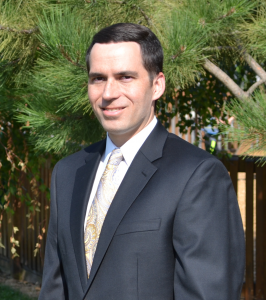
By Wilton H. Strickland
In the early stages of the COVID crisis I wrote an article summarizing the major aspects of the U.S. Constitution in an effort to help people think more critically about government power and take more control over their lives. These issues have become even more controversial since then, and an old decision by the U.S. Supreme Court is gaining new attention because it appears to grant the government carte blanche to pursue vaccination, up to and including forced vaccination against a citizen’s will. This is very serious, so I reviewed the decision and found that it draws the sharp distinction between state power (broad) and federal power (narrow) that I discussed in my previous article. This distinction means that while state governments can force ordinary citizens to get vaccinated, the federal government cannot. Please note that I am not addressing the ability to make vaccination a condition of the federal government’s own employment or contractual relationships.
In Jacobson v. Massachusetts, 197 U.S. 11 (1905), the Court confronted a challenge to certain statutes that Massachusetts had adopted to eliminate smallpox. Based on these statutes, the Board of Health in Cambridge ordered that all citizens who had not been successfully vaccinated since 1897 be vaccinated or re-vaccinated. The plaintiff was a man who had been charged with a crime for refusing vaccination. He challenged the underlying statutes as a violation of his rights under the U.S. Constitution, particularly because he had reason to believe that he would suffer an adverse (perhaps even fatal) reaction to the vaccine.
Permeating the parties’ arguments and the Court’s analysis is a focus on the extent of a state’s “police power,” the residual authority over matters of public health, safety, and morals that the states kept for themselves rather than delegate to the federal government.
The plaintiff framed his argument as challenging “[t]he right of the State under police power to enforce vaccination upon its inhabitants,” and he emphasized that three-quarters of the states had chosen not to do so.
The Massachusetts Attorney General also framed his argument in terms of a state’s “police power” and asserted that “it is for the legislature of each State to determine whether vaccination is effective in preventing the spread of smallpox or not[.]”
Upon considering the parties’ arguments, the Court explained that the power to compel vaccination indeed falls within the “police power” that the individual states kept for themselves, as follows (emphases added):
The authority of the State to enact this statute is to be referred to what is commonly called the police power — a power which the State did not surrender when becoming a member of the Union under the Constitution. Although this court has refrained from any attempt to define the limits of that power, yet it has distinctly recognized the authority of a State to enact quarantine laws and “health laws of every description;” indeed, all laws that relate to matters completely within its territory and which do not by their necessary operation affect the people of other States. According to settled principles the police power of a State must be held to embrace, at least, such reasonable regulations established directly by legislative enactment as will protect the public health and the public safety.
. . .
While this court should guard with firmness every right appertaining to life, liberty or property as secured to the individual by the Supreme Law of the Land, it is of the last importance that it should not invade the domain of local authority except when it is plainly necessary to do so in order to enforce that law. The safety and the health of the people of Massachusetts are, in the first instance, for that Commonwealth to guard and protect. They are matters that do not ordinarily concern the National Government. So far as they can be reached by any government, they depend, primarily, upon such action as the State in its wisdom may take; and we do not perceive that this legislation has invaded by right secured by the Federal Constitution.
Clearly, the holding in Jacobson vindicates the police power as the unique province of the states. It does not recognize the power of the federal government over these matters, a conclusion that would require finding that the states had surrendered such power and no longer could exercise it. Recall that the Tenth Amendment mandates that state power and federal power be mirror images of each other — completely opposite — because all powers not delegated to the federal government nor prohibited by the Constitution are reserved to the states.
In short, the fact that state governments can compel vaccination means that the federal government cannot. Some states might compel vaccination, others might not, and that’s that. Efforts to compel vaccination on a national scale cannot find support in Jacobson and, in fact, are hostile to it.
As I mentioned in my previous article, however, the Supreme Court has re-imagined the U.S. Constitution in a variety of ways since 1905, so there is no telling what the Court might do with regard to these matters. All I can say is that the Court is merely one branch of the federal government and, like the other branches, inferior to the U.S. Constitution. Thomas Jefferson, Andrew Jackson, Abraham Lincoln, and many other giants of American history have recognized that the Constitution belongs to the people, who must exercise their own judgment on these weighty questions rather than resign themselves to whatever the Court might decide in a particular case or controversy.
UPDATE (January 14, 2022)
The Supreme Court recently struck down a federal regulation mandating vaccination or testing for employees of large companies. What’s truly remarkable about the decision is that it presumes Congress may approve of such a mandate. The fact that Congress did not do so here is what doomed the regulation, but Congress presumably may impose such a mandate in the future. This illustrates, once again, how far the Court has strayed from the constitutional blueprint and from the Court’s own prior decision in Jacobson, whose logic dictates that the power to compel vaccination was retained by the States and belongs to them alone.


